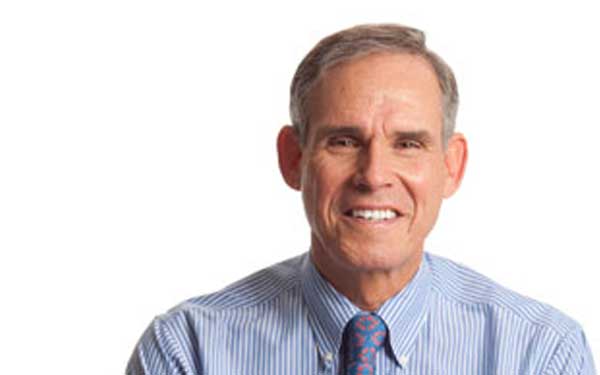Scripps Health’s Dr. Eric Topol Foresees Consumer Electronics Fueling Revolution in Health Care
Scripps Chief Academic Officer to deliver two CES keynotes

Eric Topol, MD, cardiologist and chief academic officer at Scripps Health.
Las Vegas – Wireless electronic devices such as those on display at the 2012 International CES are driving a revolution in the medical world that promises to radically change the way health care is delivered to patients.
That’s the wake-up call that physician-researcher Dr. Eric Topol of Scripps Health will deliver during two keynote presentations at one of the world’s largest consumer electronics gatherings being held Jan. 10-13 in Las Vegas.
During a Tuesday, Jan. 10, appearance (8:30 a.m., Venetian Ballroom) with Qualcomm Chief Executive Officer Dr. Paul Jacobs, Dr. Topol will demonstrate some of the latest innovative wireless health devices that are leaps ahead of current standards of care.
He will speak again on Wednesday, Jan. 11 (9 a.m., Las Vegas Convention Center’s North Hall), at the Digital Health Summit, which is being held in conjunction with CES.
This new chapter in the convergence of science and technology already is being written through cutting-edge mobile devices that can continuously monitor vital signs, track the electrical pulses of the heart and quickly scan a person’s DNA for signs of whether a particular drug will work in them.
“Wireless medicine is not some sort of far-fetched science fiction dream — it’s real and it’s here right now,” said Dr. Topol, who is chief academic officer of Scripps Health.
“We are at a critical and great inflection of medicine,” he said. “These devices provide an enormous jump forward in our ability to provide better health care and better disease prevention.”
His new book, “The Creative Destruction of Medicine,” which will be released in hardback on Feb. 1, is as much a call to arms for patients as it is a celebration of the emergence of the digital human, whose biological components can be transposed into billions of bits of useful data.
“None of these things are going to happen unless consumers become informed about these new technologies,” he said. “This must be a consumer-led revolution, otherwise it won’t happen.”
However, Dr. Topol believes the path forward is riddled with potential stumbling blocks. Dr. Topol also serves as vice chairman at the West Wireless Health Institute, a nonprofit medical research association.
He noted that personalized medicine, the new and more precise method of characterizing the genetic qualities of individual patients for diagnosis and treatment, is at odds with the century old population-based practice of medicine. Much of the waste in the nation’s $2.7 trillion health-care system is related to prescribing drugs that don’t work effectively because not enough is known about the individual patient. Meanwhile, many traditionalist physicians are reluctant to embrace such a wholesale shake-up of the way they work.
But with pressure building on doctors, hospitals and policy makers to reign in health care costs while improving outcomes, the mandate for technology-driven change has never been stronger, Dr. Topol said.
About Scripps Health
Learn more about Scripps Health, a nonprofit integrated health system based in San Diego, Calif.
Media Contact
- Keith Darce
- 858-678-7121
- darce.keith@scrippshealth.org
- Follow me: @KeithDarce